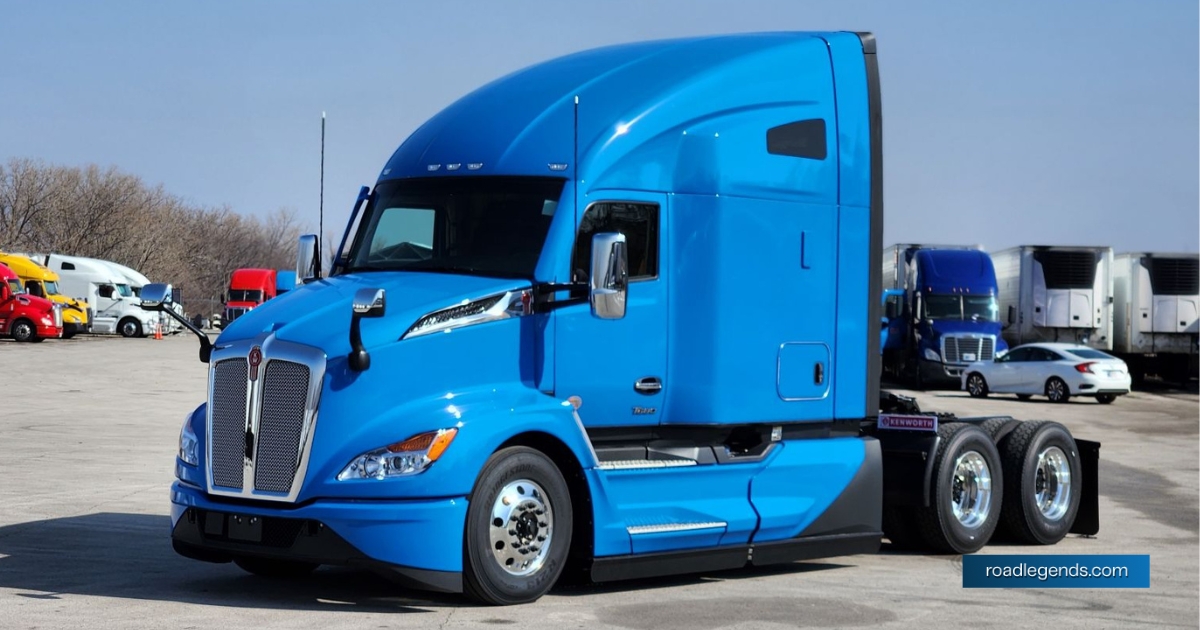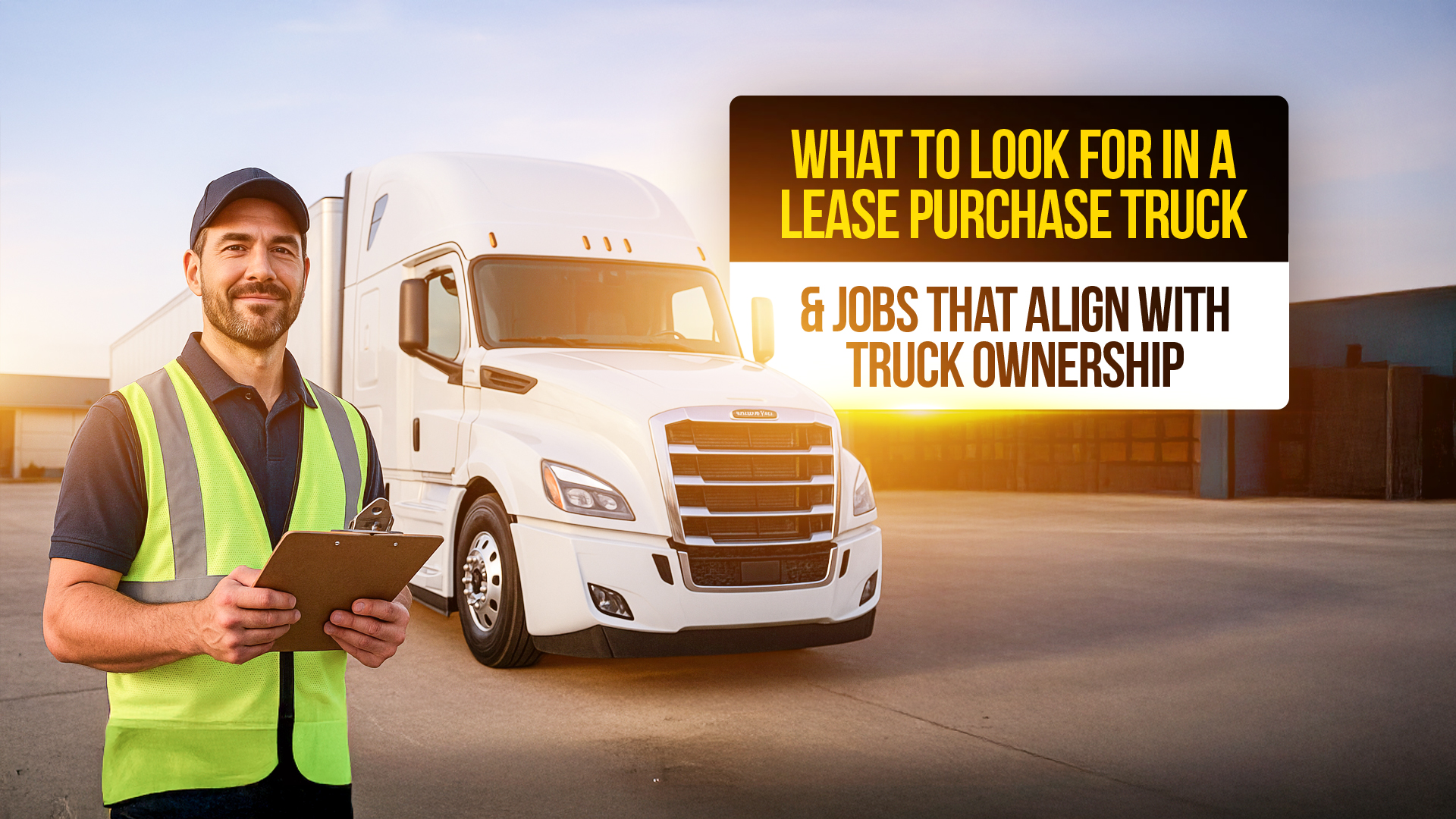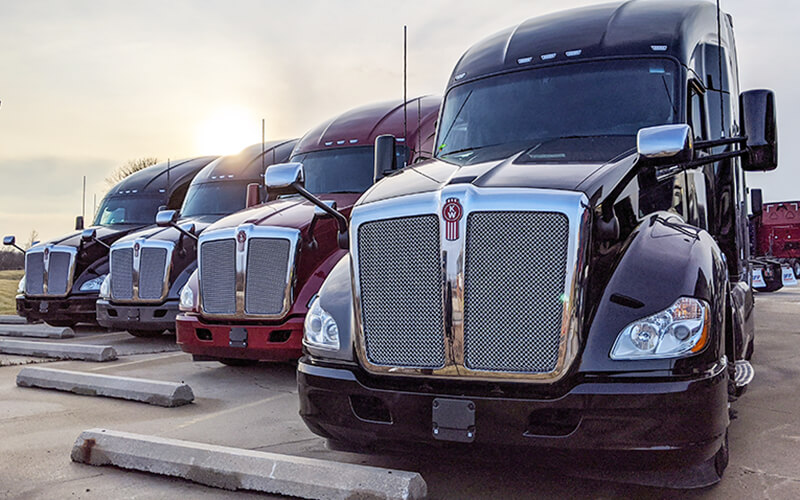Top Lease Purchase Trucking Companies | Your Guide to Ownership
Top Lease Purchase Trucking Companies | Your Guide to Ownership
So, you’re thinking about becoming your own boss and hitting the open road as an owner-operator. The path to truck ownership is a big decision, and for many, a lease purchase program offered by a trucking company is the most accessible first step. But with so many options out there, how do you choose the right partner? This guide cuts through the noise. We’ll break down some of the top lease purchase trucking companies and give you the straight talk you need to navigate this critical career move, turning your ambition of truck ownership into a reality.
What is a Lease Purchase Program, Really?
Before we dive into companies, let’s get crystal clear on what you’re signing up for. A lease purchase agreement is a financial arrangement where you drive a company’s truck with the goal of owning it after a set period or once a specific amount is paid. You’re essentially leasing the rig with an option to buy. You pay a weekly or monthly amount that covers the truck’s cost, and sometimes maintenance and insurance. The key difference from a pure lease is that a portion of your payments builds equity. It’s a popular path to ownership because the upfront costs are far lower than getting a commercial loan for a new rig. However, not all programs are created equal. Your success hinges on the fine print: the pay rate, the final buyout price, and the support the company provides.

Key Factors to Evaluate Before You Sign
Don’t get blinded by the dream of ownership. A savvy driver looks at the numbers and the support system. Here’s what you need to scrutinize:
- Transparency of Costs: What is the total buyout price? Are there hidden fees? A clear, fixed price is non-negotiable.
- Revenue and Miles: How does the company secure freight? Consistent, high-paying miles are the lifeblood of your business. Ask about their average revenue per mile.
- Support Systems: What kind of operational, maintenance, and business support do they offer? You’re a businessman, not just a driver.
- Exit Strategy: What happens if things don’t work out? Understand the terms for walking away. It’s just as important as the purchase terms.
Profiles of Leading Lease Purchase Providers
Based on industry reputation, driver reviews, and program structures, here are a few prominent names in the trucking lease purchase space. Remember, this is a starting point for your own deep research.
| Company | Program Highlights | Fleet Size (Approx.) | Noteworthy Feature |
|---|---|---|---|
| CRST | Team-driven focused, offers multiple dedicated lanes. | 2,000+ Trucks | Well-established with a strong training program for new entrants. |
| Stevens Transport | Primarily temperature-controlled freight, offers a “No Credit Check” program. | 1,800+ Trucks | Specializes in reefer freight, which can offer more consistent rates. |
| Bennett Motor Express | Flatbed, specialized, and van freight. Emphasizes driver relationships. | 1,000+ Trucks | Family-owned feel with a focus on irregular route freight. |
| Western Express | Offers both company driver and lease purchase options, often with newer truck models. | 3,500+ Trucks | Rapidly growing fleet with a wide variety of freight types. |
An Expert’s Take on Choosing a Partner
We spoke with Michael Robertson, a former driver and now a financial advisor who specializes in helping owner-operators. He stressed the importance of looking beyond the marketing. “A great truck lease to own company acts as a true partner,” Robertson says. “You need to see their financials for the program. How many drivers actually complete the purchase? What’s their driver turnover rate? If they’re not willing to be transparent with that data, it’s a major red flag. Your goal isn’t just to get a truck; it’s to build a profitable, sustainable business.” This expert insight aligns with the need for trust and transparency in any financial partnership.
The Financial Reality: Making the Numbers Work
Let’s talk dollars and cents. The American Transportation Research Institute (ATRI) consistently reports that fuel and truck payments are among the top operational costs for owner-operators1. In a lease purchase program, your fixed weekly payment is a huge part of your budget. You must calculate your potential net income after ALL expenses: the truck payment, fuel, maintenance, permits, and your personal living costs. A common pitfall is only focusing on the revenue and not the bottom line. For instance, the Bureau of Labor Statistics notes that the median annual wage for heavy and tractor-trailer truck drivers was $49,920 in May 20222. As an owner-operator in a lease, your goal is to significantly exceed that figure to account for your business risks and investment.
Your Roadmap to a Successful Lease Purchase
Ready to take the wheel? Here is a step-by-step action plan:
- Self-Assessment: Crunch your personal budget. How much do you need to take home weekly? Be brutally honest.
- Research & Shortlist: Identify 3-5 companies whose programs, freight, and company culture seem like a good fit.
- Due Diligence: This is the most critical step. Read the contract with a fine-tooth comb. Use online driver forums and review sites to get unfiltered opinions from current and former contractors.
- Ask the Hard Questions: Contact recruiters and ask for the data Michael Robertson mentioned. What is the completion rate? What is the average net income for drivers in the program?
- Plan for the Long Haul: Once you sign, treat it like the business it is. Keep meticulous records, maintain your truck proactively, and constantly look for ways to improve your efficiency.
Frequently Asked Questions
Is a trucking lease purchase a good idea?
It can be an excellent idea for a disciplined, business-minded driver who understands the costs and risks. It’s a path to ownership without a massive down payment. However, it’s a terrible idea for someone who just wants to drive and not manage the business side.

Can you make money in a lease purchase program?
Absolutely, many do. But your profit is what’s left after all expenses. Your success depends on the freight rates the company secures, your ability to control costs (especially fuel), and the overall fairness of the program’s financial structure.
What happens if I fail a lease purchase?
The consequences vary by contract. Typically, you will lose any equity you’ve built up and may be responsible for any outstanding fees or repairs. This is why understanding the exit clauses before you sign is absolutely crucial.
Sources:
1. American Transportation Research Institute (ATRI). “Operational Costs of Trucking 2023“.
2. U.S. Bureau of Labor Statistics. “Heavy and Tractor-Trailer Truck Drivers“.









